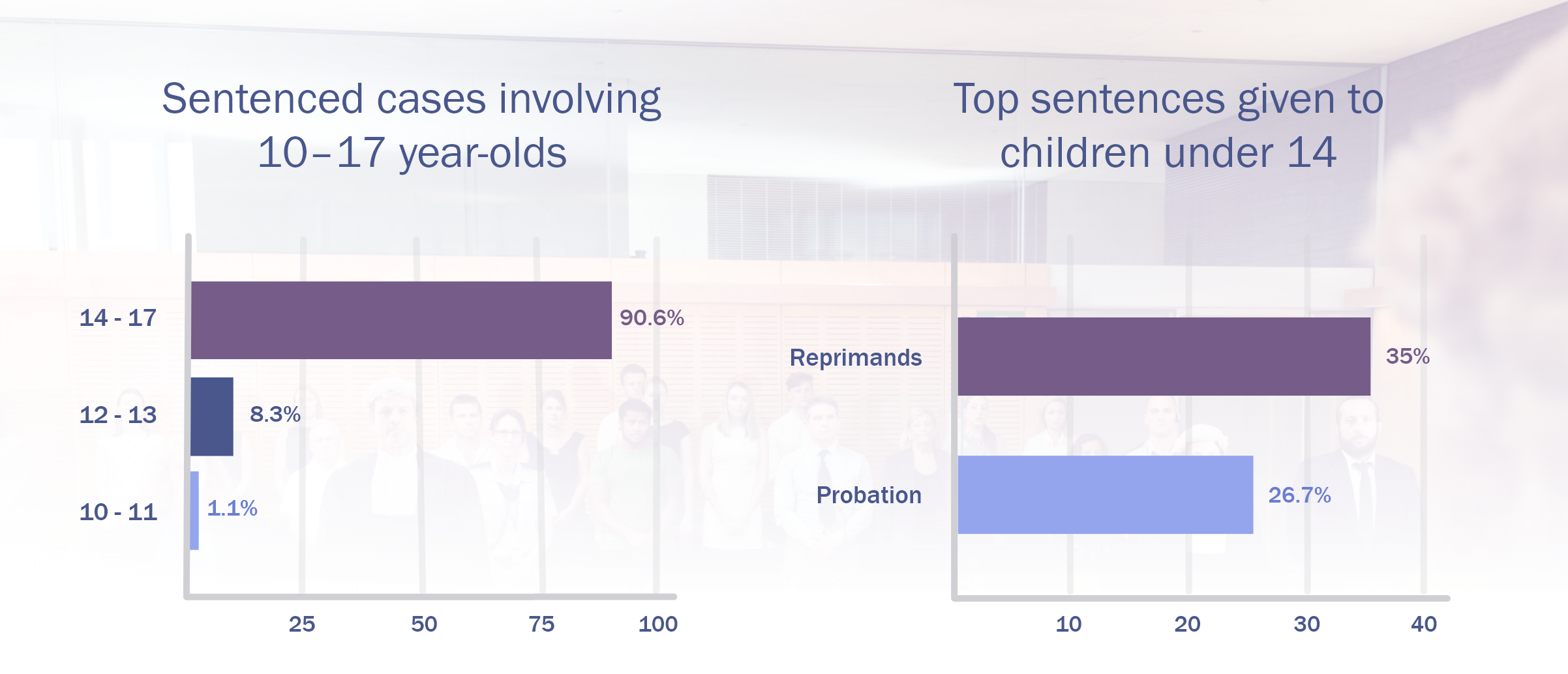Media release
The Queensland Sentencing Advisory Council has released a new report Sentencing of offences committed by children aged under 14 in Queensland that examines the sentencing of children aged 10–13 between 2005–06 to 2021–22.
The report, which provides timely data-driven insights as Queensland and other states discuss raising the minimum age of criminal responsibility, shows that children aged 10–13 represent less than 10% of all young people (aged 10–17) sentenced. For children aged 10 and 11, the figure drops to 1.1%.

Council Chair and former President of the Children’s Court of Queensland John Robertson said the low numbers in this cohort suggest that alternative responses to sentencing could be considered for these very young children.
‘Research has shown that children who come into the criminal justice system at a young age are more likely to reoffend,’ Mr Robertson said.
‘When we consider the life circumstances of many of these younger children, and the type of offending they engage in, it is not surprising that there are questions being asked about the benefits of criminalising children at such a young age.
‘If the minimum age of criminal responsibility is raised, the low numbers in this cohort suggest it should be feasible to develop alternative responses to properly support these young children and give them the best opportunity to stop offending,
‘However, we do acknowledge that this must be balanced with the fact that a very small proportion of this cohort are committing very serious offences.’
According to the report, in 2021–22 there were 482 unique children sentenced for offences committed when they were under 14 — and, of these, 38 were dealt with for offences committed when aged under 12. This was lower than the yearly average of 651 over the 17-year period as sentenced cases did not return to pre-pandemic levels.
Children aged 10–13 were mostly sentenced for property offences such as unlawful entry (28.1%), wilful damage (26.8%) and stealing (25.9%).
Courts were most likely to give reprimands (27.4%) and probation orders (23.1%). Only 2.1% of sentences involved detention – of these, almost half were for burglary (24.3%) or unlawful entry (21.9%) offences.
‘For this cohort, we’re talking about a very small number of younger children engaged in what is typically property-related offending,’ Mr Robertson said.
‘Of the small number of cases involving serious offences sentenced in the higher courts, children under 14 at the time of the offence were most often sentenced for robbery. However, this only represented 3.4% of all sentenced robbery cases across Queensland.’
Sentencing of offences committed by children aged under 14 in Queensland is the latest research brief released by the Queensland Sentencing Advisory Council. The research brief builds on findings of the Council’s Kids in Court and Engendering Justice reports that explore trends and patterns in the sentencing of children and women and girls in Queensland.
Contact: Hayley Carter
Phone: 0459887077
Email: media@sentencingcouncil.qld.gov.au




